View current news articles, commentary, videos and more having an impact on Jewish culture, politics and religion at Rabbi Silverman's Sites to See
Should We Celebrate Thanksgiving?
Some celebrities have recently gotten on the bandwagon for not celebrating Thanksgiving because it glorifies a time at which the Westerner essentially inhabited and took over land and resources from the indigenous peoples of America. These same concerns have taken hold of those who decline to celebrate Columbus Day as well. My impression is that Thanksgiving celebrates the mutual help lent by settlers to Indians and vice versa, and that therefore, this day may be all the more needed. My focus here, however, is not to determine if we should or should not celebrate Thanksgiving for these reasons. Rather, let’s examine why some Jews don't celebrate this National holiday for Halahkic reasons; that is, reasons of Jewish law.
Some who are very opposed take the position that it is a case of Avodah Zara, that Thanksgiving is a holiday dictated by the worship of a foreign power, and that Jews should give their lives rather than in engage in such idolatrous worship. That viewpoint is disputed by the great Rabbi Moses Feinstein, who tells us first that some aspects of even foreign worship, like being compelled to drink a wine libation used for foreign worship, still would not require a person to sacrifice their life. But that aside, this is not worship of an idol, nor is it even worship dictated by religious authorities per se. This is a celebration that became a custom over time, with the help of secular authorities wishing to celebrate a national sense of thanksgiving at the end of harvest time and at the moment when we move determinedly into the winter months. Yes, there is a reflection of a good God Who shall help us, but it is decidedly generic and diffused, and therefore not a religious holiday per se.
Rav Feinstein rules, however, that Thanksgiving might be seen as a "custom of the Gentiles," as it seems to be followed with a particular rigor by many who don't have a logical reason for such a custom. He would regard a distinctive hair style that many take up for no particular reason in the same light. Finding that the laws in the Torah that state "don’t follow the customs of the Amorite" might be appropriate, he rules that it's advisable that Jews don't eat turkey on that particular day as a matter of principle. Others say that he may have softened his view over time and he certainly allows a festive meal on that day so long as it is understood in one’s mind that partaking of the meal is voluntary and not “obligatory” in any sense.
Some authorities bring up the rule of "Bal Tosif"– "adding Torah laws" with holidays that are not specifically specified in the Torah. That, however, might make Purim and Chanukah problematic, as they aren't specified in the Torah either! Furthermore, Rabbi Moses Isserlis (Rema), in the Shulchan Aruch, mentions that Jews may even participate in exchanging gifts at times of Christian holidays with their neighbors if it's for the sake of good will or the welfare of Jewish communities in their environment (Yoreh Deah, 184:12). The fact that this is not a Christian holiday but a national secular one, set in motion by the American government and society, makes it all the more permitted. Rabbi Joseph Soloveitchik, another Torah luminary, ruled that, as such, there was really nothing wrong with celebrating with our fellow Americans. He himself had a Thanksgiving meal, although he didn’t cancel his Talmud classes that day!
I have yet to come across a Conservative Teshuva on the issue, probably because it was inconceivable that enjoying Thanksgiving was problematic. One might even make the case that Thanksgiving is a holiday we should feel is mandatory. Its features include giving thanks for the providential care God gives us in life, and a concomitant concern for those who are in need and without sustenance as they face the harsh winter. Both of those concerns are mitzvoth that we must perform each and every day. If we encounter a destitute person, the Torah tells us we must contribute toward feeding and clothing them. Deuteronomy tells us that you should take a poor person into your household and seek shelter for them. Each and everyday, every morning and noon, we pray from our Siddur that we are grateful to God for giving us the small miracles of body and soul, and declare thanks to God for being Mechadesh bechol Yom–He Who each and every day creates the world anew!
Therefore, one can make the case that Thanksgiving is not at all a holiday following gentile customs. It is simply an opportunity, on that particular day, to fulfill two important mitzvoth. Naturally, we should respect the views of others who hold otherwise. That, after all, is the American way and the Jewish way. Know, however, that if you do keep Thanksgiving, you have Halachic legs to stand on.
May we, at Thanksgiving, enjoy family and friends, and draw its important lessons of gratitude to God, country and empathy for the poor. Beth joins me in saying May your bounty be sufficient and our winter warm–
